








Camino Recovery
Verified Center
This provider's information has been quality-checked by Recovery.com's Research Team for accuracy and completeness, including center verification through appropriate third-party organizations.
Treatment Focus
This center treats substance use disorders and mental health conditions. You'll receive individualized care catered to your unique situation and diagnosis, learn practical skills for recovery, and make new connections in a restorative environment.
Primary Level of Care
Offering intensive care with 24/7 monitoring, residential treatment is typically 30 days and can cover multiple levels of care. Length can range from 14 to 90 days typically.
Treatment Focus
This center treats substance use disorders and mental health conditions. You'll receive individualized care catered to your unique situation and diagnosis, learn practical skills for recovery, and make new connections in a restorative environment.
Primary Level of Care
Offering intensive care with 24/7 monitoring, residential treatment is typically 30 days and can cover multiple levels of care. Length can range from 14 to 90 days typically.
Private Pay
You pay directly for treatment out of pocket. This approach can offer enhanced privacy and flexibility, without involving insurance. Exact costs vary based on program and length of stay. Contact the center for specific details.
Camino Recovery
Camino Recovery
About Camino Recovery
Camino Recovery is an intentionally small, family-run treatment centre with nearly two decades of experience treating addiction, trauma, and co-occurring mental health conditions. Clients coming from abroad discover discreet, clinically rigorous care, with a high staff-to-client ratio that provides a level of personal attention rarely available elsewhere. Within 30 minutes of Málaga International Airport, clients heal in a breathtaking area of Andalucía where no one needs anything from them.
Engage in Bespoke, Evidence-Based Solutions
Camino’s clinical team aims to help clients become more able to handle life’s complexity and pressure without feeling the need for short-term external fixes. They use a variety of evidence-based treatment approaches, including equine-assisted psychotherapy (EAP), eye movement desensitisation and reprocessing (EMDR), dialectical behavior therapy (DBT), art therapy, and psychodrama. Programmes also embrace experiential therapies and holistic methods including mindfulness, spirituality, yoga, physical wellness, nutrition, sleep hygiene, movement, connection, and long-term personal alignment.
Reset in Seclusion Near Málaga
With its ultra-small census of 7 clients, Camino’s private residential setting provides a powerful reset. Clients find comfort in private or shared suites, and enjoy exquisite cuisine prepared with fresh, local ingredients. The outdoor pool, palm trees, terraces, and walled gardens create a distinctly serene setting. Clients experience more of sunny Andalucía through curated excursions like sailing, hiking, golfing, and visits to picturesque villages, the Picasso Museum, the Alhambra Palace, and the Benálmadena Butterfly Park.
Maintain Momentum with Complimentary Aftercare
Camino Recovery ensures ongoing support to ease the transition home and maximise the chance of a dependence-free life. During treatment, each client and their therapist create a detailed aftercare plan with tailored recommendations for support in the client’s home community. To help them reach recovery milestones, plans often include weekly outpatient services, family programming, relapse prevention workshops, biweekly online alumni meetings, and ongoing staff support by phone.

Highlights from the Center
Highlights
These highlights are provided by and paid for by the center.
Equine Therapy
Family Owned & Operated
Trauma-Informed Care
Master's Level Therapists
Center Overview
Treatment Focus
This center treats substance use disorders and mental health conditions. You'll receive individualized care catered to your unique situation and diagnosis, learn practical skills for recovery, and make new connections in a restorative environment.

Camino Recovery
Pricing and Program Length
Estimated Center Costs
The cost listed here (€28,500 per month), is an estimate of program cost. Center price can vary based on program and length of stay. Contact the center for more information. Recovery.com strives for price transparency so you can make an informed decision.




Recovery.com Verified Listing
Recovery.com verified that the name, location, contact information and license to operate for this treatment provider are valid and up-to-date.
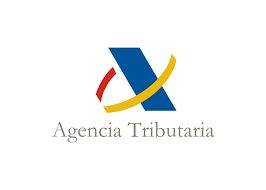
Licensed by Malaga
Recovery.com is an independent, third-party mental health resource. Verification does not imply endorsement and does not guarantee the quality of treatment services.
Meet Your Care Team

Dr. José Manuel Sánchez
Consultant Psychiatrist

Dr. RAFAEL CAMPOS CLOUTÉ
Consultant Doctor
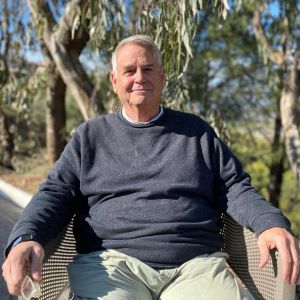
Don Lavender
Programme Director
BA, MDiv,

Ameet Braich
Clinical Director
BEng, MA, CADC (IC&RC)

Meena Lavender
Director and Family Therapist

Inés García Hierrezuelo
Clinical Psychologist
BA, MA

Dr Vik Patel
DBT Therapist
BSc,MSc, DPsych
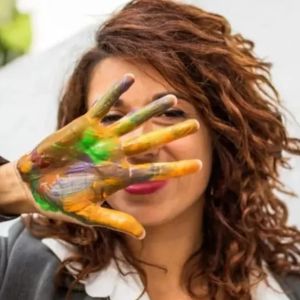
Araceli Guiote
Art Therapist
PhD

Janet Floyer
Creative Writing Therapist
MA

Andrea Taylor
Clinical Outreach
MSc MBACP, FDAP

Loren Eden
Intake coordinator, Administration and Finance
BSc

Mier Weaver
Intake Coordinator

Katie Scully
Clinical Aid
BA
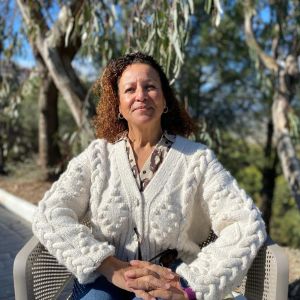
Yvonne Lewis
Clinical Aid/Chef
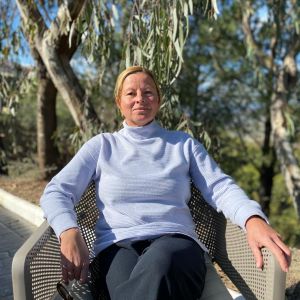
Nicki Bracey
Clinical Aid
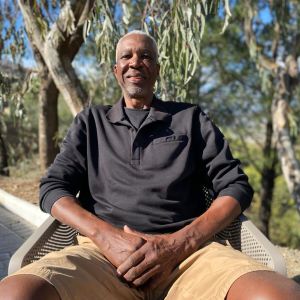
Lionel Billingy
Clinical Aid/Spiritual Advisor

REBECCA O'CONNOR
Clinical Aid and Yoga Teacher

Mari Carmen Silva Aparicio
Chef

Tanya Boucher
Yoga Instructor
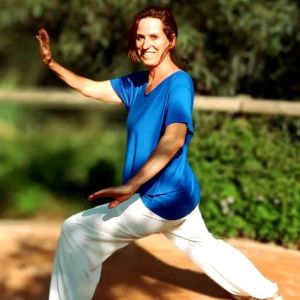
lIV jACOBS
Tai Chi & Qi Gong Wellness Expert

Alex Fenn
Massage Therapist

Joanna Lissel
Massage and Personal Training
Your Care Options
Specializations
Alcohol
Using alcohol as a coping mechanism, or drinking excessively throughout the week, signals an alcohol use disorder.
Burnout
Burnout entails mental and physical exhaustion, and leads to a severe lack of fulfillment. This condition is often caused by overwork.
Cocaine
Cocaine is a stimulant with euphoric effects. Agitation, muscle ticks, psychosis, and heart issues are common symptoms of cocaine abuse.
Depression
Symptoms of depression may include fatigue, a sense of numbness, and loss of interest in activities. This condition can range from mild to severe.
Drug Addiction
Drug addiction is the excessive and repetitive use of substances, despite harmful consequences to a person's life, health, and relationships.
Executives
Executive treatment programs typically directly support the needs of people who manage businesses and may provide flexible schedules and office space to allow work during treatment.
Post Traumatic Stress Disorder
PTSD is a long-term mental health issue caused by a disturbing event or events. Symptoms include anxiety, dissociation, flashbacks, and intrusive thoughts.
Trauma
Some traumatic events are so disturbing that they cause long-term mental health problems. Those ongoing issues can also be referred to as "trauma."
Who We Treat
Older Adults
Addiction and mental health treatment caters to adults 55+ and the age-specific challenges that can come with recovery, wellness, and overall happiness.
Executives
Executive treatment programs typically directly support the needs of people who manage businesses and may provide flexible schedules and office space to allow work during treatment.
Young Adults
Emerging adults ages 18-25 receive treatment catered to the unique challenges of early adulthood, like college, risky behaviors, and vocational struggles.
LGBTQ+
Addiction and mental illnesses in the LGBTQ+ community must be treated with an affirming, safe, and relevant approach, which many centers provide.
Men and Women
Men and women attend treatment for addiction in a co-ed setting, going to therapy groups together to share experiences, struggles, and successes.
Midlife Adults
For adults ages 40+, treatment shifts to focus on the unique challenges, blocks, and risk factors of their age group, and unites peers in a similar community.
Professionals
Busy, high-ranking professionals get the personalized treatment they need with greater accommodations for work, privacy, and outside communication.
Treatment Services
Detox
Detox fully and safely removes toxic substances from the body, allowing the next steps in treatment to begin with a clean slate.
Intensive Family Program
Some rehabs offer intensive programs for loved ones. Group and individual therapy sessions help everyone heal, and improve family dynamics.
Residential
In a residential rehab program, patients live onsite, with access to daily treatment and 24-hour care. An average stay is 30-90 days.
Approaches
Evidence-Based
A combination of scientifically rooted therapies and treatments make up evidence-based care, defined by their measured and proven results.
Family Involvement
Providers involve family in the treatment of their loved one through family therapy, visits, or both–because addiction is a family disease.
Holistic
A non-medicinal, wellness-focused approach that aims to align the mind, body, and spirit for deep and lasting healing.
Therapies
1-on-1 Counseling
Patient and therapist meet 1-on-1 to work through difficult emotions and behavioral challenges in a personal, private setting.
Meditation & Mindfulness
A practiced state of mind that brings patients to the present. It allows them to become fully aware of themselves, their feelings, and the present moment.
Trauma-Specific Therapy
This form of talk therapy addresses any childhood trauma at the root of a patient's current diagnosis.
Rational Emotive Behavior Therapy
A type of cognitive therapy that identifies negative self-defeating thoughts and behaviors, rewriting beliefs to be positive, empowering, and present.
Adventure Therapy
This experiential approach uses the physical and emotional challenges of outdoor activities as tools for personal growth.
Art Therapy
Visual art invites patients to examine the emotions within their work, focusing on the process of creativity and its gentle therapeutic power.
Equine Therapy
Guided interactions with trained horses, their handler, and a therapist can help patients improve their self-esteem, trust, empathy, and social skills.
Conditions We Treat
Pornography Addiction
A person with a porn addiction is emotionally dependent on pornography to the point that it interferes with their daily life and relationships.
Grief and Loss
Grief is a natural reaction to loss, but severe grief can interfere with your ability to function. You can get treatment for this condition.
Personality Disorders
Personality disorders destabilize the way a person thinks, feels, and behaves. If untreated, they can undermine relationships and lead to severe distress.
ADHD, ADD
ADHD is a common mental health condition caused by dopamine imbalance. Common symptoms include inattention, hyperactivitiy, and impulsivity.
Anxiety
Anxiety is a common mental health condition that can include excessive worry, panic attacks, physical tension, and increased blood pressure.
Bipolar
This mental health condition is characterized by extreme mood swings between depression, mania, and remission.
Burnout
Burnout entails mental and physical exhaustion, and leads to a severe lack of fulfillment. This condition is often caused by overwork.
Chronic Pain Management
Long-term physical pain can have an affect on mental health. Without support, it can also impact your daily life and even lead to addiction.
Substances We Treat
Alcohol
Using alcohol as a coping mechanism, or drinking excessively throughout the week, signals an alcohol use disorder.
Benzodiazepines
Benzodiazepines are prescribed to treat anxiety and sleep issues. They are highly habit forming, and their abuse can cause mood changes and poor judgement.
Chronic Relapse
Consistent relapse occurs repeatedly, after partial recovery from addiction. This condition requires long-term treatment.
Co-Occurring Disorders
A person with multiple mental health diagnoses, such as addiction and depression, has co-occurring disorders also called dual diagnosis.
Cocaine
Cocaine is a stimulant with euphoric effects. Agitation, muscle ticks, psychosis, and heart issues are common symptoms of cocaine abuse.
Drug Addiction
Drug addiction is the excessive and repetitive use of substances, despite harmful consequences to a person's life, health, and relationships.
Ecstasy
Ecstasy is a stimulant that causes intense euphoria and heightened awareness. Abuse of this drug can trigger depression, insomnia, and memory problems.
Heroin
Heroin is a highly addictive and illegal opioid. It can cause insomnia, collapsed veins, heart issues, and additional mental health issues.
Languages
Aftercare
Care Designed for Your Needs
Personal Amenities
Amenities
Special Considerations
Executive Program
Addiction and mental health treatment for executives typically involves high discretion, greater technology access, and more private, 1-on-1 care.
Activities
Yoga
Yoga is both a physical and spiritual practice. It includes a flow of movement, breathing techniques, and meditation.
Off-Site Activities
Learn More About the Center
Executive Burnout
Recognise how burnout, depression, and addiction intersect for high-performing leaders under sustained pressure.
Holistic Wellness
Explore how Camino’s integrative wellness practices support deeper healing beyond symptom-focused addiction treatment.
Ketamine Addiction
Understand the risks of ketamine use and Camino’s pathways to specialised, discreet recovery support.
Family Programme
Learn how Camino’s structured family involvement strengthens recovery and restores healthier relational dynamics.
What people are saying
Treatment
5.0
Accommodations
4.8
Food & Nutrition
4.8
Value
4.6
Pros
- Excellent & Effective Treatment Programming (5)
- Friendly & Competent Staff (5)
- Addressed Trauma (5)
- Beautiful Location (4)
John D
Treatment in 2019 • (90 days) • Reviewed 01/17/23
Former Client
•Therapist
•UK
Bella- Eloise
Treatment in 2021 • (124 days, just over 4 months) • Reviewed 01/12/23
Former Client
•Student
•England
Letita
Treatment in 2022 • (60 days) • Reviewed 01/30/23
Former Client
•-
•UK
Anonymous
Treatment in 2018 • (120 days) • Reviewed 01/17/23
Former Client
•Doctor
•Birmingham, UK
Patrick Jones
Treatment in 2012 • (60 days) • Reviewed 01/13/23
Former Client
•Entrepreneur





